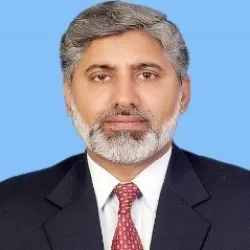2020 Strategic Planning and Project Management: Delivering Change and Meeting Objectives
Strategic Planning and Project Management: Delivering Change and Meeting Objectives
Strategic Planning and Project Management: Delivering Change and Meeting Objectives
November 11 - 12
Chair: Janet Cosier, former adviser on strategic planning and risk management, Bank of Canada
How do central bankers strategically plan in an era of immediate crisis and long term technology-driven disruption? How can central banks, as institutions and through their policies, systematically incorporate and prioritise climate risk? How can a central bank embrace innovation in a way that is not only consistent with its mandate, but which supports it?
It is a shifting world that strategic planners find themselves in. Covid-19 has created immediate need for bank wide response. Climate risk and sustainability more broadly require a bank wide response, and a commitment throughout to change. Technology has fundamentally altered the markets, producing new areas of oversight and sources of risks. More broadly technology has created opportunities for central banks has overseers and system operators. These dynamics will have far-reaching consequences for the work of central banks and the profession of central banking. Understanding implications, identifying synergies and taking a long-term view will be essential. This is the work of the strategic planner.
This course, “Strategic Planning and Project Management: Delivering Change and Meeting Objectives” is designed to equip central bankers to meet these challenges.
Agenda
Participants will have access to pre-recorded presentations two weeks before the course
Challenges for central banks under a multi-mandate framework
Pre-recorded presentation
00:00 - 00:30
- The key issues facing financial reporting in the modern central bank
- Operational challenges central banks face in adapting to the new environment
- Implications for balance sheets, contingent liabilities and shareholder relations
- Discussion: impact of Covid-19 measures on balance sheets in participants’ home jurisdictions
Valeria Gontareva served as the Governor of the National Bank of Ukraine in 2014-2017. She was the first woman to lead Ukraine’s central bank and oversaw vital reforms to implement a new monetary policy of inflation targeting and flexible exchange rate regime, to clean up Ukraine’s banking sector, strengthen regulatory supervision, and ensure the independence of the National Bank.
Ms Gontareva started her career in financial services in 1993 and built up over two decades of private sector experience at both Ukrainian and international financial institutions before her appointment as Governor of the central bank. Between 1996 and 2000 she worked at the Kyiv branch of Société Générale, moving to ING Bank in 2001 where she rose to first Deputy Chairman of the Board. Between 2007 and 2014 she led Investment Capital Ukraine (now ICU), a top Ukrainian financial services group.
Ms Gontareva graduated in 1987 from Kyiv Polytechnic Institute and also obtained a Masters degree in Economics from Kyiv National Economic University in 1997.
Towards sustainability: strategic perspectives on greening central banking
Pre-recorded presentation
17:15 - 18:30
- Understanding the connection between central banking and climate-related risks
- A framework for thinking about climate-related risks and their impact
- Implications for policymaking, operations and governance
- What this means for strategic planning: short, medium and long term
Gábor Gyura has a masters degree in Economics and also holds a PhD in Earth Sciences. He was founding head of the Sustainable Finance Department at the Central Bank of Hungary and was responsible for the Bank’s green agenda between 2018 and 2022. His main work area was the development of the domestic green finance market and the improvement of environmental risk management in the financial system, also representing the Bank in various international committees related to sustainable and climate finance such as the Network for Greening the Financial System (NGFS) and the European Supervisory Authorities. Since May 2022 Gabor is a consultant at the United Nations Environment Program Finance Initiative (UNEPFI), and since 2021 also acts as assistant professor at the Budapest University of Technology and Economics’ Finance Department, teaching and researching sustainable finance.
Designing the strategic plan: key building blocks, focus areas and performance indicators
Pre-recorded presentation
11:00 - 12:30
- Key features of building blocks of a modern strategic plan
- Tips for integrating new areas of focus into strategic planning
- Using the planning cycle to gain an effective outcome
- Hands on exercise: indicators and matrixes for continuous assessment of strategic objectives
Making the most of Big Data and advanced analytics
09:00 - 10:30
- State of the art of Big Data and advanced analytics
- Examples of applications in central banking and supervision
- Overview of opportunities for strategic planning and management
- Implications for resourcing and institutional organisation
Trevor Sabean was appointed interim senior director of the Bank of Canada’s Data and Statistics Office in October 2017. In this capacity, he oversees the divisions responsible for ensuring that the Bank of Canada’s economists and researchers have efficient access to high quality data and statistics, as well as the required IT tools (High Performance Computing, analytic packages, dedicated research zone, etc.), and technical and statistical support. Prior to joining the central bank, he worked for Statistics Canada. When he joined the central bank in 2010, he worked as the assistant director where he was responsible for the bank’s Macroeconomic Indicators and Financial Institutions Statistics division. Mr. Sabean holds a Bachelor of Commerce from McGill University, a Masters of Arts in Economics from the University of Ottawa, and a Masters Certificate in Risk Management & Business Performance from York University.
Times in GMT
12:00 – 12:30
Course introduction
Opening remarks with the course chair
00:00 - 00:30
- Introduction of the chairman
- Overview of the training course
- Discussion of the delegate expectations
12:30 – 13:30
Project development in focus: strategic management through annual business plan
Presentation followed by Q&A
00:00 - 01:00
- The role of an annual business plan in strategic management
- Examples of project development as a tool for strategic planning implementation
- Frameworks for continuous assessments of short, medium and long term delivery of a project
- Case study: strategic management through annual business plan in the state bank of Pakistan
Shehzad Ali Sharif currently working as a Senior Joint Director has more than a decade and a half of working experience with the Central Bank. His main areas of expertise are Strategic Planning, Annual Performance Review and BCP. He played a key role in the development of SBP Vision 2020. In the area of BCP, he has been involved since the inception of BCP program in 2006, and has been instrumental in the development of the BCP manuals, policies, establishment of multiple backup sites, conducting BIAs & BCP preparedness Reviews, BCP Communication cards and development of the BCP course curriculum. Due to his accomplishments in the field of BCP at SBP, Mr. Shehzad was awarded with the Organizational Competence Award. Mr. Shehzad holds an engineering degree and an MBA degree.
Muhammad Akmal, has banking experience spreading over three decades. Joining the State Bank of Pakistan in 1991, he has worked in areas of regulation and supervision of banks and nonbank financial institutions. His areas of expertise include Banking Inspection, Foreign Exchange Policy formulation and implementation, Consumer Protection, Banking Conduct, etc. In view of his vast experience in Central Banking, he has been entrusted with the charge of Director Strategic Planning to provide leadership to SBP in formulation and implementation of strategic goals and SBP Vision 2020. He has attended a number of local and foreign trainings/expert panels and attachment programs offered by other central banks, IMF and the World Bank. He is member of various committees of the SBP. He also remained Co-Chairman National Financial Inclusion Strategy (NFIS) Technical Committee on “Financial Literacy & Consumer Protection”, Country Coordinator for Asian Clearing Union, especially for attending issues relating to import/export. He has conducted various capacity building programs for SBP and the Banking Industry. He has been a resource person from SBP for imparting trainings at Foreign Services Academy, Government of Pakistan, National Accountability Bureau (NAB), Federal Investigation Agency (FIA), Trade bodies/Chambers and National Institute of Banking & Finance (NIBAF).
13:30 – 13:45
Break
00:00 - 00:15
13:45 – 14:45
Innovative processes and technologies as basis for successful data management and analysis – OeNB’s case
Presentation followed by Q&A
13:15 - 14:45
- Challenges and key components central banks‘ data management
- What does SupTech mean on the input (reporting) side?
- OeNB’s reporting data model as RegTech/SupTech solution
- Tips for working with key external partners and stakeholders
- Data governance – get the most out of data
Guenther Sedlacek is Senior Reporting Development Manager and head of the unit “integrated data model” in the statistics department of the Oesterreichischen Nationalbank (OeNB). Since 2013 he has been responsible for the development of the new integrated reporting data model used in the Austrian banking market as well as for the cooperation with reporting agents belonging to the financial sector and software providers.
He studied Technical Mathematics und started his business career as a research assistant at the statistics department of the Vienna University of Economics and Business, where he also received his PhD. In 2001 he changed over to the statistics department of the OeNB. There he was responsible for the development and operation of the security-by-security reporting and compilation system till 2010. During this period he also worked several months for the directorate statistics at the ECB and in the financial market division of the OeNB. In 2010 he became head of the direct investment unit in the statistics department and in 2012 he took over the collection and management of micro data, including the central credit register. In 2013 he was nominated to be the chair of the Austrian Standing Committee on Reporting, where – among others - strategic decisions concerning the integrated reporting data model (timelines, contents, etc.) are made and amendments to national legal acts are discussed. He is strongly involved in some European projects regarding the future of reporting. In 2020 he has been responsible for developing a data governance concept for the OeNB in order to strengthen data usage.
14:45 – 15:00
Break
00:00 - 00:15
15:00 – 16:00
Interdepartmental Coordination From a Strategy and Risk Perspective
15:00 - 16:00
16:00 – 16:00
End of day 1
00:00 - 00:01
Times in GMT
12:00 – 13:00
The mutual enablers: strategy and risk
Interactive workshop with delegate participation
15:30 - 17:00
- Synergies and overlaps between the risk management and strategic planning function
- Emerging opportunities and unavoidable trade-offs
- Examples of methods and tools for systemic coordination and cooperation between the two functions
- Tips for engagement in the planning process: options and choices to address key areas of risk
Janet Cosier is the former Chief Risk Officer and Adviser on Strategic Planning at the Bank of Canada. She continues in her capacity as the Chair of the Board of Directors of the Canadian Payments Association. She has served in a variety of functions including comptroller and chief accountant, as well as chief internal auditor, before being appointed adviser to the governor. She has provided technical assistance to various central banks in the areas of strategic planning, risk management, governance and financial reporting. Before joining the Bank of Canada, she worked with the Office of the Auditor General of Canada and with the Department of Industry, Trade and Commerce. Mrs Cosier holds degrees from York University and the University of Windsor in mathematics, computer science, accounting and financial management.
13:00 – 13:15
Break
00:00 - 00:15
13:15 – 14:15
Making the most of Big Data and advanced analytics
09:00 - 10:30
- State of the art of Big Data and advanced analytics
- Examples of applications in central banking and supervision
- Overview of opportunities for strategic planning and management
- Implications for resourcing and institutional organisation
Trevor Sabean was appointed interim senior director of the Bank of Canada’s Data and Statistics Office in October 2017. In this capacity, he oversees the divisions responsible for ensuring that the Bank of Canada’s economists and researchers have efficient access to high quality data and statistics, as well as the required IT tools (High Performance Computing, analytic packages, dedicated research zone, etc.), and technical and statistical support. Prior to joining the central bank, he worked for Statistics Canada. When he joined the central bank in 2010, he worked as the assistant director where he was responsible for the bank’s Macroeconomic Indicators and Financial Institutions Statistics division. Mr. Sabean holds a Bachelor of Commerce from McGill University, a Masters of Arts in Economics from the University of Ottawa, and a Masters Certificate in Risk Management & Business Performance from York University.
14:15 – 14:30
Break
00:00 - 00:15
14:30 – 15:30
Cyber resilience of digitalized ecosystems: roles and responsibilities of regulators and supervisors
Presentation followed by Q&A
00:00 - 01:00
- Building blocks of an effective cyber resilience framework
- The role of intelligence-led exercises in cyber resilience strategies
- Examples of initiatives facilitating cooperation and coordination between the regulator and the regulated
- Discussion: what cyber risks do regulators and supervisors need to focus on as a priority?
15:30 – 15:45
Break
00:00 - 00:15
15:45 – 16:15
Networking break
15:30 - 16:00
Post training survey and feedback
00:00 - 00:30
CPE/CPD certificate
00:00 - 00:30
Course alumni group
00:00 - 00:30
Chair

Janet Cosier
Former Adviser on Strategic Planning and Risk Management
Bank of Canada
Janet Cosier is the former Chief Risk Officer and Adviser on Strategic Planning at the Bank of Canada. She continues in her capacity as the Chair of the Board of Directors of the Canadian Payments Association. She has served in a variety of functions including comptroller and chief accountant, as well as chief internal auditor, before being appointed adviser to the governor. She has provided technical assistance to various central banks in the areas of strategic planning, risk management, governance and financial reporting. Before joining the Bank of Canada, she worked with the Office of the Auditor General of Canada and with the Department of Industry, Trade and Commerce. Mrs Cosier holds degrees from York University and the University of Windsor in mathematics, computer science, accounting and financial management.
Learning outcomes
By the end of the training course, participants will have gained new knowledge and a more comprehensive understanding of:
- New responsbilities that come with climate risk
- How to invest in cyber resilience frameworks
- Understanding how to coordinate risk management and strategic planning
- Creating an annual business plan
- New variables and dynamics shaping the work of strategic managers in 2020
- Building a reputational framework and working with central bank leaders
- Hands on practical approach – learning to build frameworks








